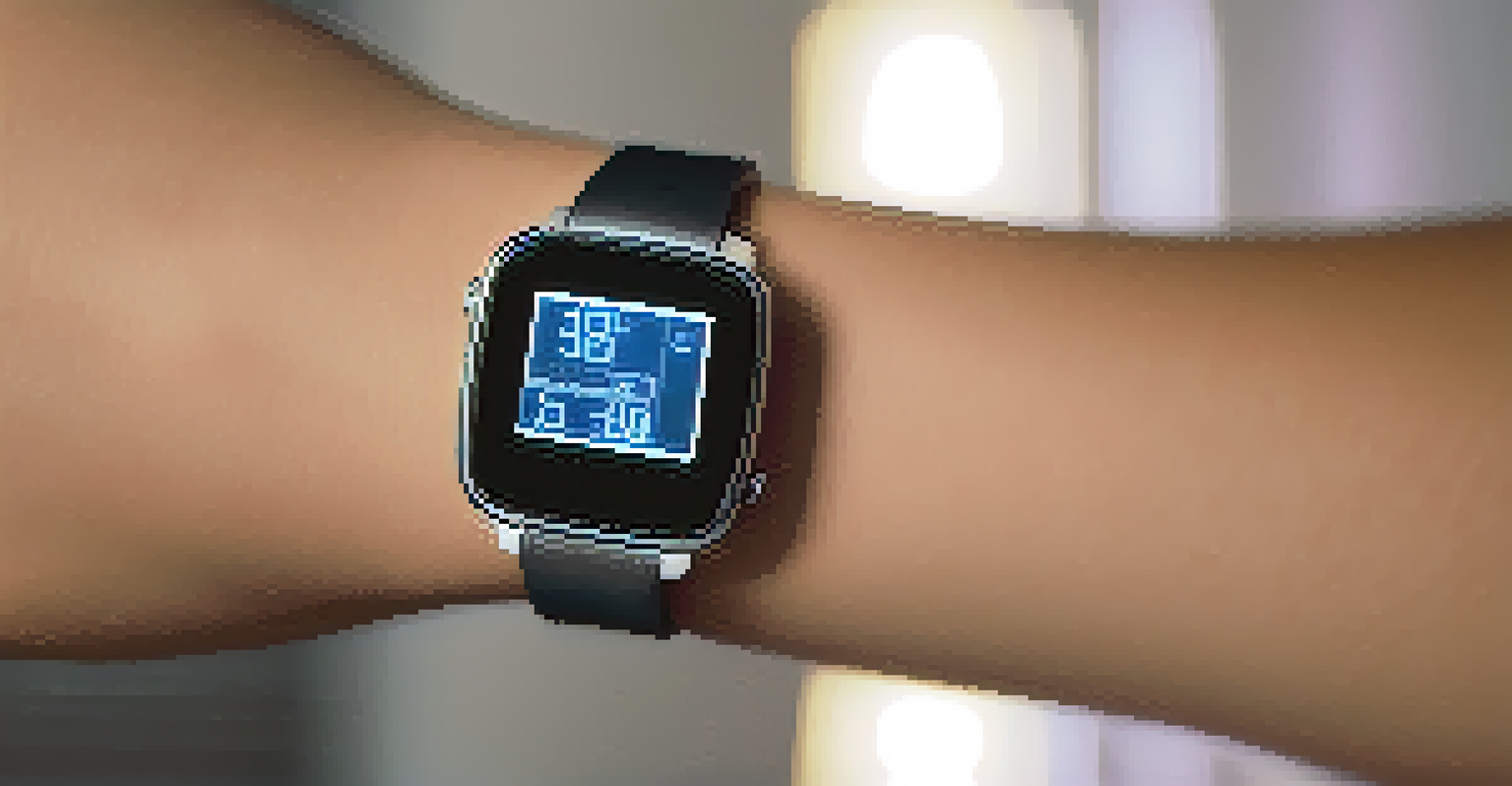Sleep Quality Assessment: Tools for Mental Health Professionals

Understanding the Importance of Sleep Quality in Mental Health
Sleep quality plays a crucial role in our overall mental health. Poor sleep can lead to mood disorders, anxiety, and even exacerbate existing mental health issues. For mental health professionals, understanding sleep patterns is essential in providing comprehensive care to their clients.
Sleep is the best meditation.
Research has shown a clear connection between sleep disturbances and various mental health conditions. For instance, individuals with depression often experience insomnia or hypersomnia, which can complicate treatment. This highlights the need for mental health practitioners to assess sleep quality as part of their evaluations.
By prioritizing sleep quality, professionals can develop more effective treatment plans. This might involve recommending sleep hygiene practices or collaborating with sleep specialists. Ultimately, addressing sleep can significantly improve a client's mental health outcomes.
Common Sleep Quality Metrics Used in Assessments
When assessing sleep quality, professionals often rely on specific metrics. These include sleep duration, sleep latency, and sleep efficiency, which provide valuable insights into a person's sleep habits. Understanding these metrics is essential for identifying sleep problems and their potential impact on mental health.

For example, sleep duration refers to the total amount of sleep obtained in a 24-hour period. If a client consistently sleeps less than the recommended amount, it can indicate underlying issues that need to be addressed. Similarly, sleep latency measures how long it takes to fall asleep, which can reflect anxiety or racing thoughts.
Sleep Quality Impacts Mental Health
Poor sleep quality can lead to mood disorders and exacerbate existing mental health issues.
By focusing on these metrics, mental health professionals can pinpoint areas of concern. This data-driven approach allows for tailored interventions that can lead to improved sleep quality and, in turn, better mental health.
Tools for Sleep Quality Assessment: Questionnaires and Surveys
Questionnaires and surveys are popular tools used to assess sleep quality. Instruments like the Pittsburgh Sleep Quality Index (PSQI) and the Epworth Sleepiness Scale (ESS) provide structured ways to evaluate sleep patterns. These tools are user-friendly and can be completed by clients in a matter of minutes.
A good laugh and a long sleep are the best cures in the doctor’s book.
The PSQI, for instance, assesses various aspects of sleep, including duration, disturbances, and overall sleep quality. This comprehensive approach helps professionals identify specific sleep issues that may impact mental health. On the other hand, the ESS focuses on daytime sleepiness, offering insights into how well a client is sleeping at night.
Utilizing these tools can enhance the assessment process, making it easier for mental health professionals to gather necessary information. By integrating these assessments into practice, professionals can better understand their clients' sleep habits and needs.
Actigraphy: A High-Tech Approach to Monitoring Sleep
Actigraphy is a sophisticated method of sleep assessment that uses wearable devices to monitor sleep patterns. These devices track movement and light exposure, providing valuable data on sleep duration and quality. This objective measurement can complement subjective reports from clients, offering a fuller picture of their sleep habits.
Unlike traditional sleep diaries, actigraphy provides continuous data over several days or weeks. This allows mental health professionals to observe patterns that might not be apparent in short-term assessments. For example, clients might report feeling tired despite logging enough hours in bed, and actigraphy can reveal restless nights or frequent awakenings.
Metrics Help Assess Sleep Quality
Specific metrics like sleep duration and latency provide valuable insights into a person's sleep habits and their effects on mental health.
Incorporating actigraphy into sleep assessments can lead to more informed treatment decisions. By understanding how clients sleep in their natural environments, professionals can tailor interventions and track progress more effectively.
Sleep Diaries: A Simple Yet Effective Tool for Clients
A sleep diary is a straightforward tool that clients can use to track their sleep patterns over time. This method encourages clients to log their sleep times, wake times, and any disturbances they experience during the night. By maintaining a sleep diary, clients become more aware of their sleep habits and can identify potential triggers for poor sleep.
The beauty of sleep diaries lies in their simplicity; they require no special equipment and can be customized to meet individual needs. Clients can also note factors like caffeine intake or stress levels, which may influence their sleep quality. This self-monitoring can empower clients to take an active role in their sleep health.
For mental health professionals, reviewing sleep diaries provides valuable insights into a client’s sleep patterns. This ongoing record helps inform discussions and can lead to targeted interventions that promote better sleep quality.
Cognitive Behavioral Therapy for Insomnia (CBT-I)
Cognitive Behavioral Therapy for Insomnia (CBT-I) is an evidence-based treatment designed to improve sleep quality by addressing the thoughts and behaviors that contribute to insomnia. This therapeutic approach focuses on changing unhelpful sleep-related beliefs and developing healthier sleep habits. For mental health professionals, incorporating CBT-I can be a game-changer for clients struggling with sleep issues.
The process typically involves several components, including sleep education, cognitive restructuring, and behavioral interventions. For example, clients learn about the sleep cycle, which can demystify their experiences and reduce anxiety about sleep. Additionally, behavioral techniques like stimulus control can help establish a more conducive sleep environment.
Collaboration Enhances Care Quality
Working together with sleep specialists and other healthcare providers ensures comprehensive treatment plans that address both sleep and mental health needs.
By utilizing CBT-I, mental health professionals can provide clients with practical tools to improve their sleep quality. This not only enhances the clients' sleep but also has a positive ripple effect on their overall mental health and well-being.
The Role of Collaboration in Sleep Quality Assessment
Collaboration among healthcare providers is vital for effective sleep quality assessment. Mental health professionals should work alongside sleep specialists, primary care providers, and other relevant practitioners to ensure comprehensive care. This multidisciplinary approach allows for a more holistic understanding of a client's health and well-being.
For instance, a client with both anxiety and sleep apnea may benefit from a coordinated treatment plan involving both a therapist and a sleep physician. This collaboration ensures that all aspects of the client's health are considered, leading to more effective interventions. Sharing information and insights can also help identify patterns that may not be visible from a single perspective.

Ultimately, fostering collaboration can enhance the quality of care provided to clients. By working together, professionals can create tailored treatment plans that address both sleep and mental health needs, paving the way for better outcomes.